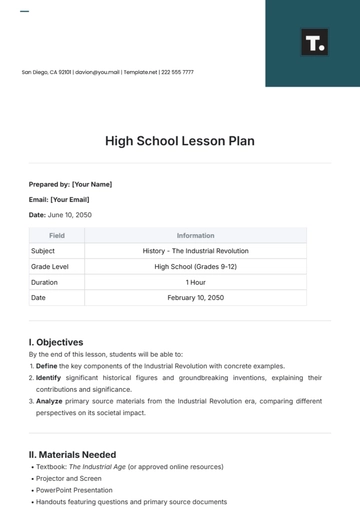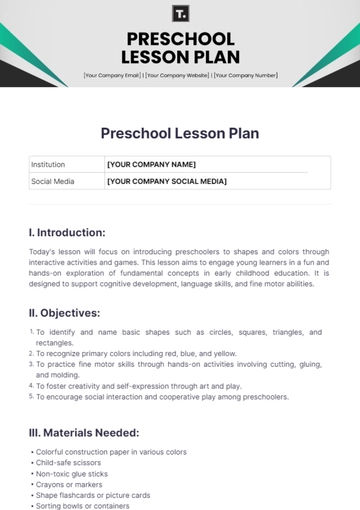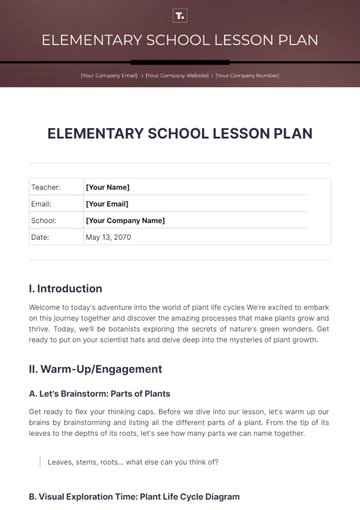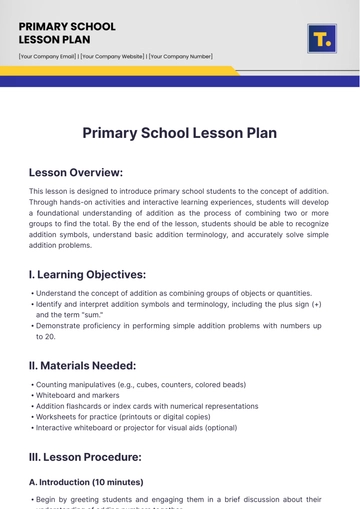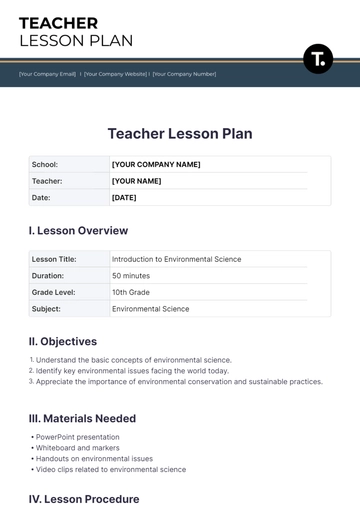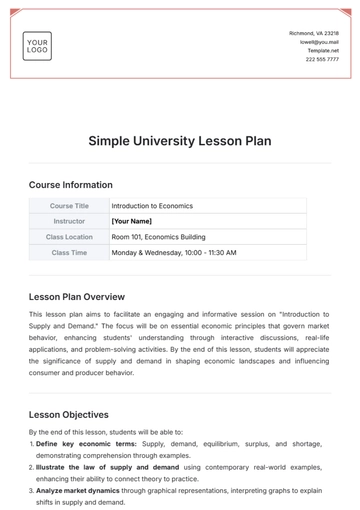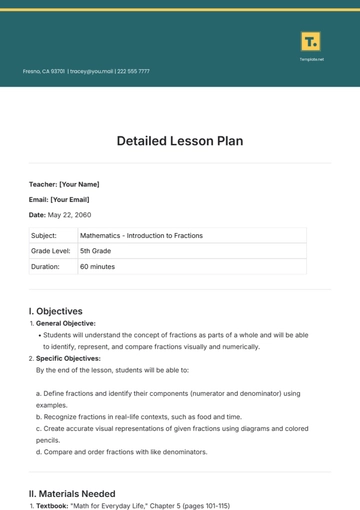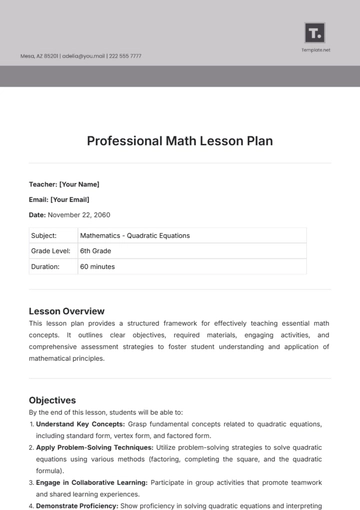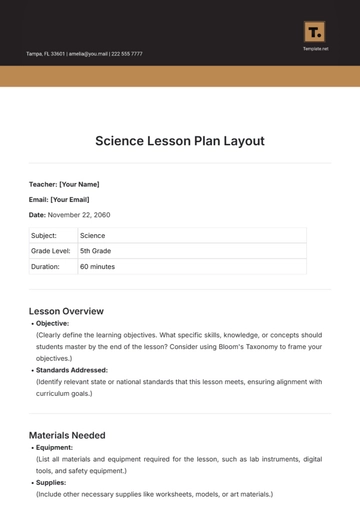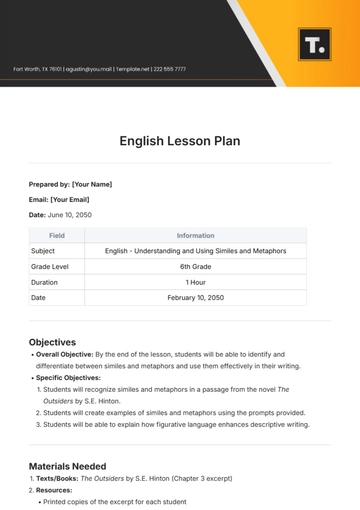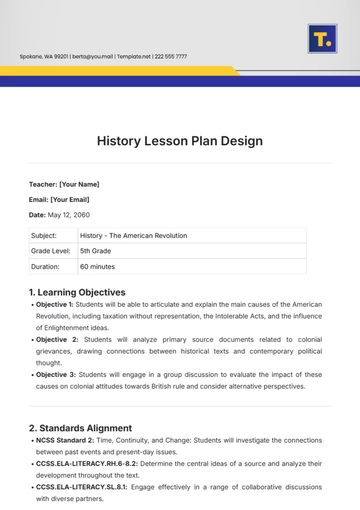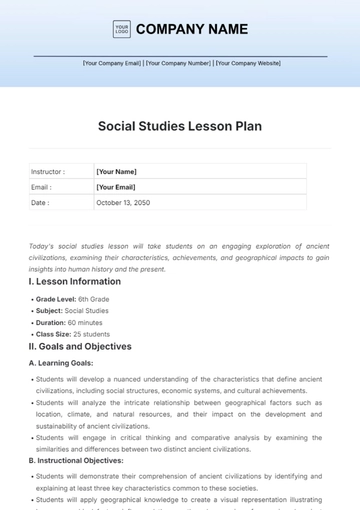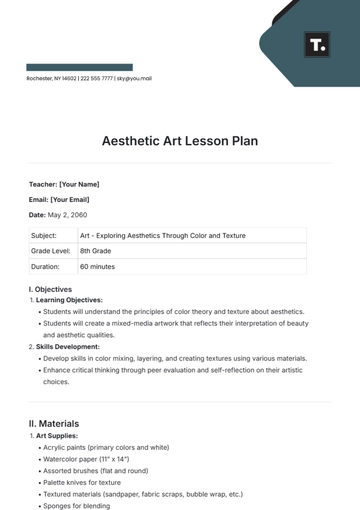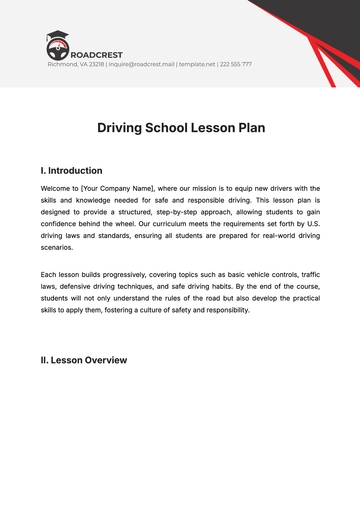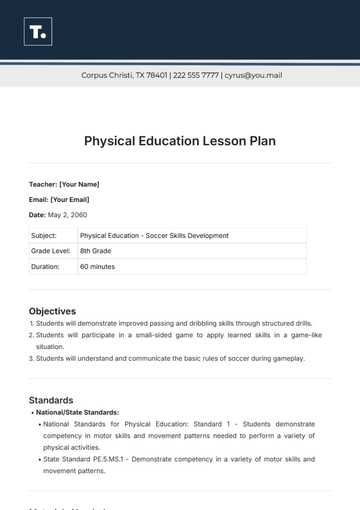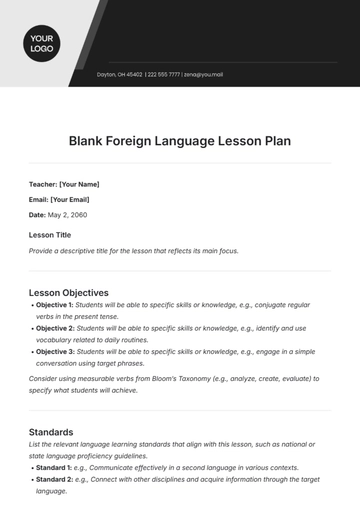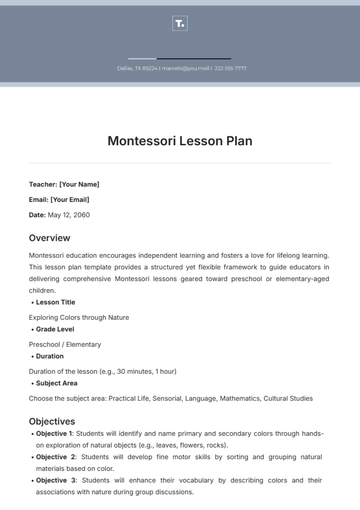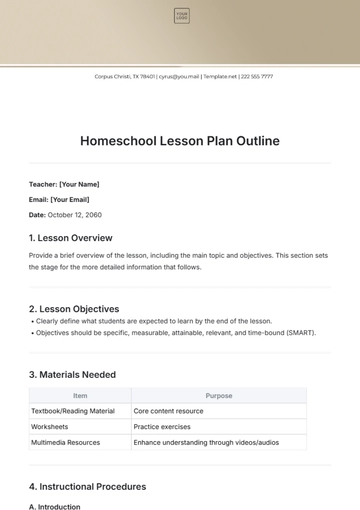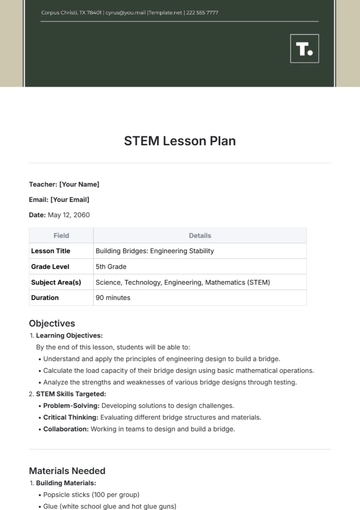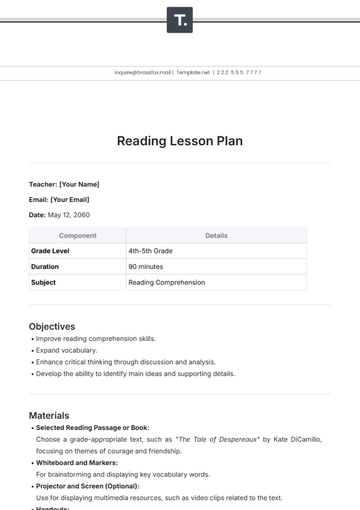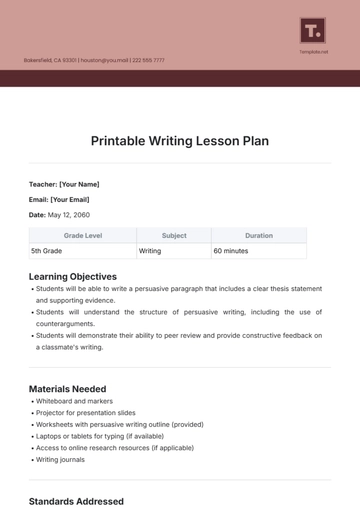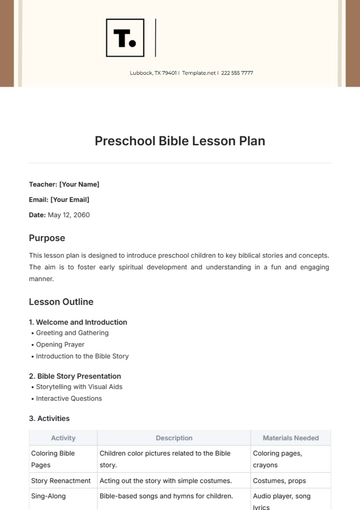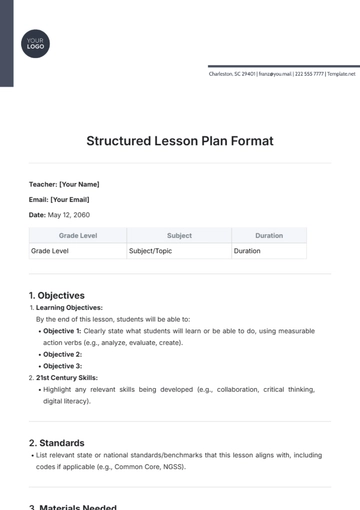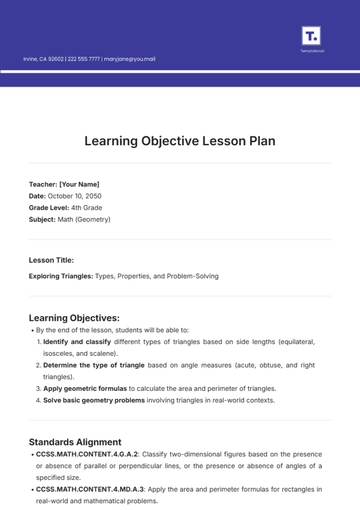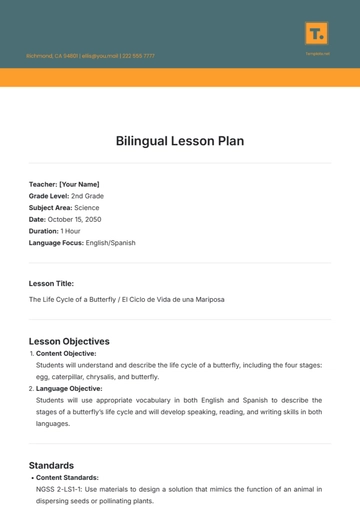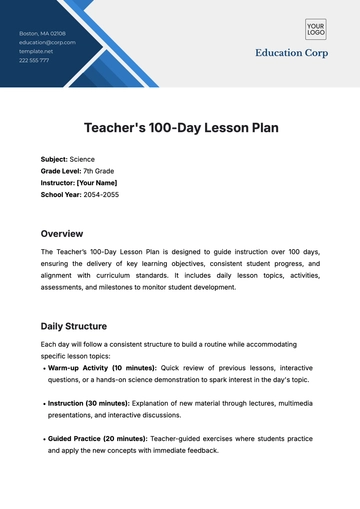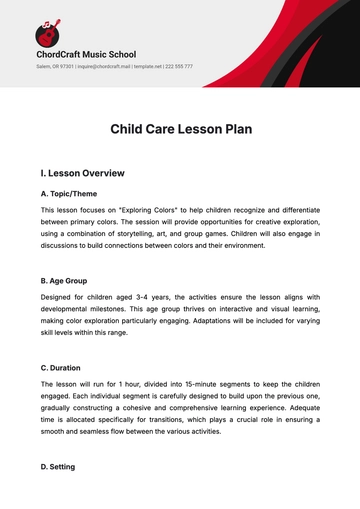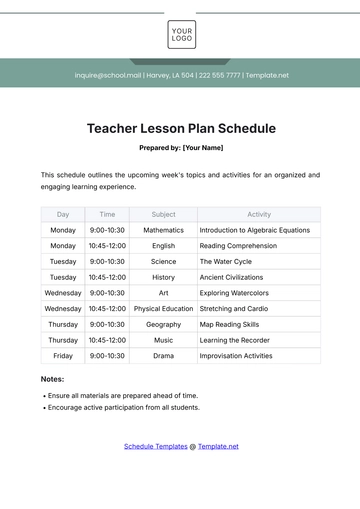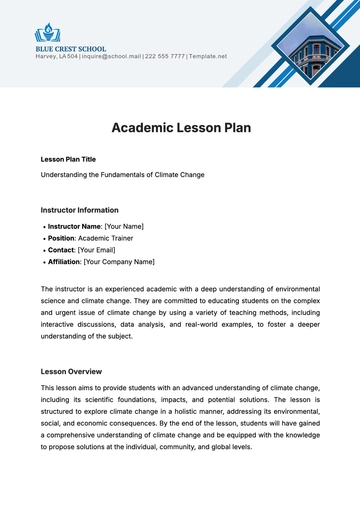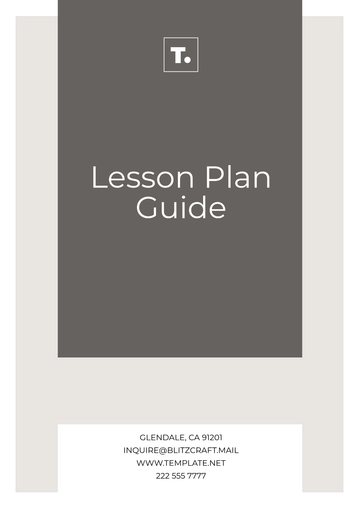Free Science Lesson Plan
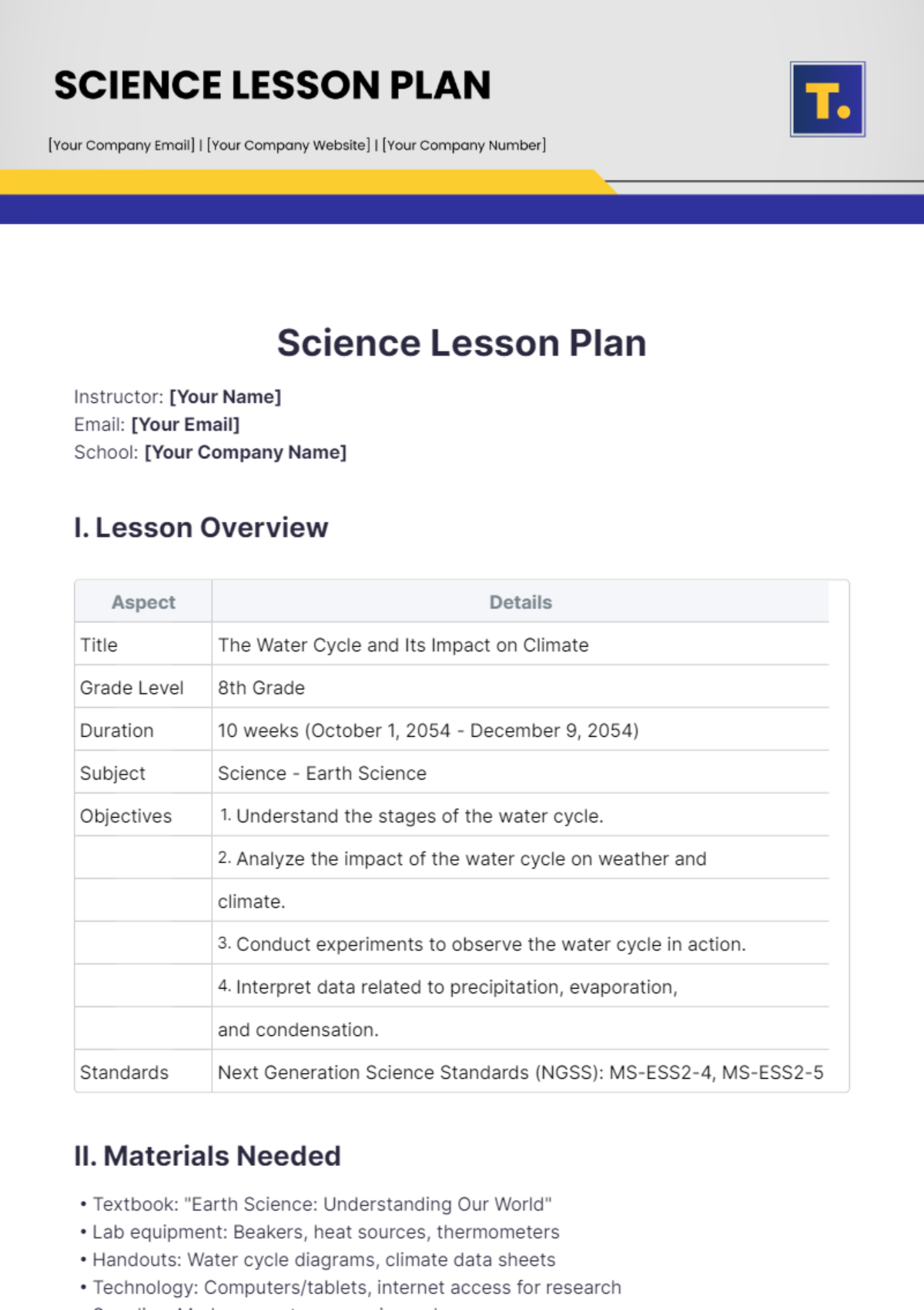
Instructor: [Your Name]
Email: [Your Email]
School: [Your Company Name]
I. Lesson Overview
Aspect | Details |
|---|---|
Title | The Water Cycle and Its Impact on Climate |
Grade Level | 8th Grade |
Duration | 10 weeks (October 1, 2054 - December 9, 2054) |
Subject | Science - Earth Science |
Objectives |
|
| |
climate. | |
| |
| |
and condensation. | |
Standards | Next Generation Science Standards (NGSS): MS-ESS2-4, MS-ESS2-5 |
II. Materials Needed
Textbook: "Earth Science: Understanding Our World"
Lab equipment: Beakers, heat sources, thermometers
Handouts: Water cycle diagrams, climate data sheets
Technology: Computers/tablets, internet access for research
Supplies: Markers, poster paper, journals
III. Lesson Structure
Week | Dates | Content | Activities | Assignments |
|---|---|---|---|---|
1-2 | Oct 1 - Oct 15 | Introduction to the Water Cycle | Interactive diagram labeling, Group discussions on local weather patterns | Daily journal entries on weather observations |
3-5 | Oct 16 - Nov 5 | Deep Dive into Each Stage | Creating mini water cycles in zip-lock bags, Observing evaporation and condensation in lab | Research project on the water cycle's effect on a chosen ecosystem |
6-8 | Nov 6 - Nov 26 | The Water Cycle and Climate | Data analysis on regional precipitation levels, Case studies of drought and flood impacts | None |
9-10 | Nov 27 - Dec 9 | Review and Assessment | Group quiz games, Interactive Q&A sessions | Final test, Presentation of research projects |
IV. Assessment/Evaluation
A. Formative Assessments
Weekly quizzes on key concepts
Lab reports on experiments
Participation in discussions and activities
B. Summative Assessments
Final written test
Research project presentation
Comprehensive lab report
V. Differentiation Strategies
To ensure all students can access and engage with the lesson content, various differentiation strategies will be employed. For advanced learners, independent research projects on advanced topics such as the impacts of climate change on the water cycle will be assigned. These projects will allow them to delve deeper into the subject matter and explore complex concepts beyond the standard curriculum.
For struggling learners, additional support will be provided through one-on-one sessions where they can receive personalized assistance. Simplified handouts and diagrams will be used to break down complex concepts into more manageable parts, and interactive activities will be tailored to their learning pace to enhance understanding.
English Language Learners (ELLs) will benefit from visual aids and bilingual resources that bridge language gaps. Collaborative learning strategies, such as peer support, will be encouraged to help ELL students engage with the material alongside their classmates. These approaches aim to create an inclusive learning environment where every student has the opportunity to succeed.
VI. Closure
The lesson will conclude with a summary activity designed to reinforce the key concepts learned throughout the unit. On December 9, 2054, students will create posters that illustrate the water cycle and highlight its significance in the environment. This creative exercise will not only solidify their understanding but also allow them to express their knowledge visually.
Following the poster activity, a class discussion will be held where students can share their projects and reflect on their learning experiences. This reflection will help students internalize the importance of the water cycle and its impact on their daily lives, fostering a deeper connection to the subject matter.
- 100% Customizable, free editor
- Access 1 Million+ Templates, photo’s & graphics
- Download or share as a template
- Click and replace photos, graphics, text, backgrounds
- Resize, crop, AI write & more
- Access advanced editor
Ignite your students’ curiosity with our Science Lesson Plan Template, offered by Template.net. This meticulously crafted template is fully customizable, allowing you to tailor each lesson to your students' needs. Downloadable and printable, it’s designed to simplify your planning process. Easily editable in our AI Editor Tool, this template ensures your science lessons are engaging and well-structured.
